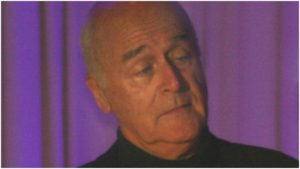
Artist Profile: The Prodigious Bass-Baritone Jose Van Dam
By David SalazarJosé van Dam is one of the most talented bass-baritones of the 20th century.
Born on August 25, 1940, in Belgium, his greatness was apparent from a very early age. He was admitted into the Brussels Royal Conservatory at 17, from which he graduated just a year later. At 21, he continued his prodigious ways, making his opera debut as Don Basilio in “Il Barbiere di Siviglia at the Opéra de Paris. In 1965, at the age of 25, he appeared as Escamillo in “Carmen” with the company. At that point, he was already on his way to singing at La Scala, the Covent Garden, and Geneva, and in 1966, at the age of 26, he was in the world premiere of Milhaud’s “La Mère Coupable.” Lorin Maazel then asked him to perform in a recording of Ravel’s “L’heure Espagnole” and a year later he was at the Deutsche Oper Berlin.
All of this before the age of 30.
And he didn’t slow down in his third decade of life. By 1974, he was awarded the title of “Kammersänger” in Berlin, an honor often conferred on artists more advanced in their careers. By the age of 40, he had obtained the Gold Medal of the Belgian Press (1976), Grand Prix de l’Académie française du Disque (1979), and Orphée d’Or de l’Académie Lyrique Française (1980). He would continue obtaining massive awards throughout his career, climaxing in his being named Baron by King Albert II of Belgium in 1998.
His talent also transferred to the world of film, where he appeared in “The Music Teacher.”
He recorded hundreds of roles throughout his career.
Signature Roles
Van Dam sang a wide range of repertoire throughout his career, though one of his famed roles is that of Don Quichotte in Massenet’s opera.
“Van Dam has sung beautifully throughout,” says a review by Gramophone of the famed recording featuring the artist. “The greying of his voice, now a very gentle instrument, lovingly preserved and used scrupulously for purposes of genuine singing, suits the role admirably except perhaps in the few moments of challenge, whether to the brigands or the windmills, when a more outgoing power is needed.”
Watch and Listen
Here is his famed “Don Quichotte” recording.
And here he is in “Don Carlo.”
Categories
Opera Wiki

